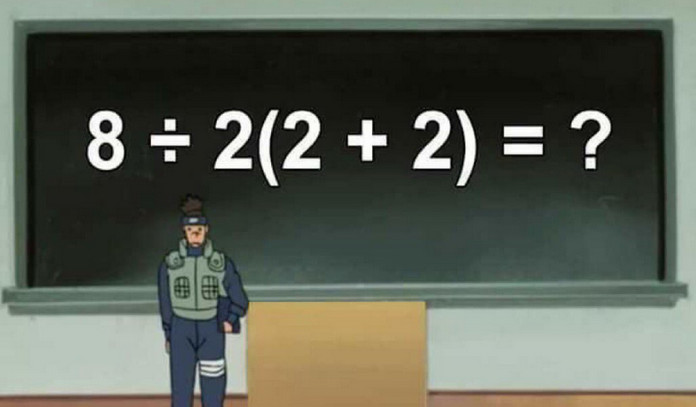
For any math problem with two or more operations, such as ‘8÷2(2+2),’ PEMDAS tells you the order of what to calculate 1st, 2nd, and so on until you arrive at an answer.
This theory was explained by one user who had this to say:
However, it seems the rules differ in many places as some people insisted BODMAS was the correct way to go. BODMAS, which is an acronym for Bracket, Order of Exponents, Division, Multiplication, Addition, and Subtraction, is a synonym of PEMDAS but the difference lies in the way they are both applied.
“For those who think it is 16 (including math teachers):
8/2(4)=8/8=1
The application of BODMAS means removing operators. You should remove brackets first before moving to the next operator.”
Here is another insight that simplifies things better:
“Normally it would be 16 using order of operations properly. Some people consider implicit multiplication (the brackets) take precedence over division and then the answer would be 1. Both are correct depending on how you math.”















